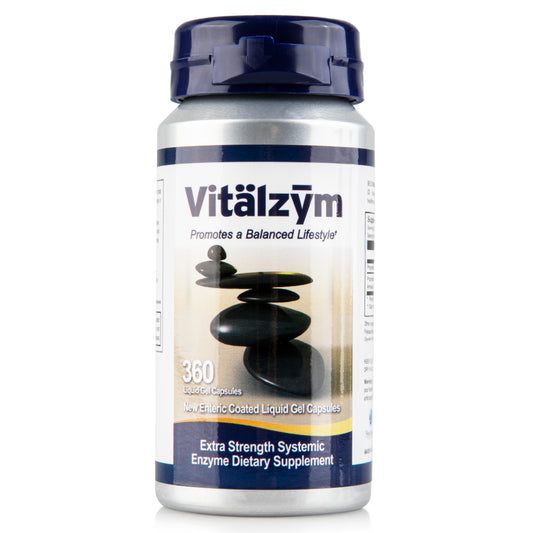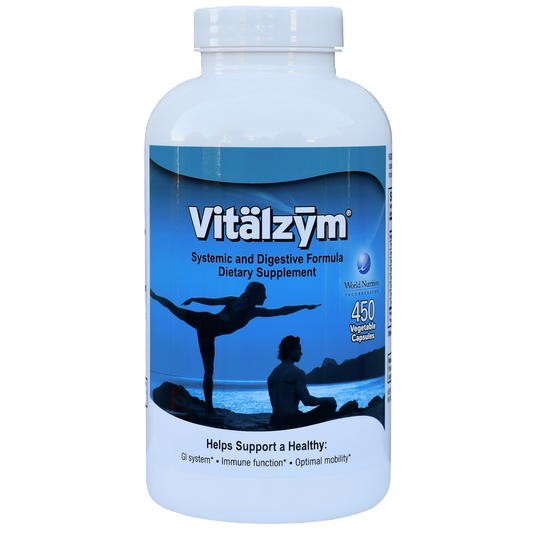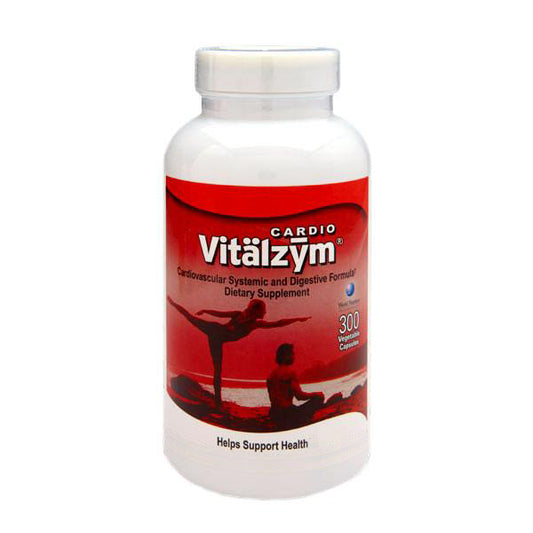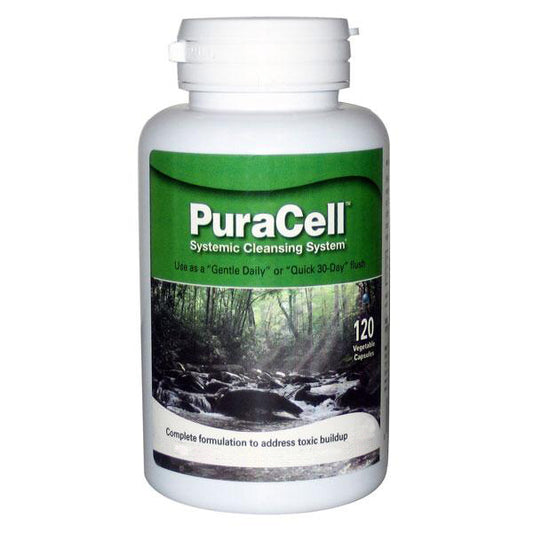Proteolytic enzymes, often referred to as proteases, are powerful catalysts that play a crucial role in the body's ability to break down proteins into amino acids. These enzymes are not only essential for digestion but also offer a myriad of health benefits, including reducing inflammation, enhancing immune function, and speeding up recovery from injuries. For those who prioritize natural and holistic health solutions, understanding the benefits and uses of proteolytic enzymes can be a game-changer in achieving optimal wellness.
What Are Proteolytic Enzymes?
Proteolytic enzymes, also known as proteases, include serine proteases and endopeptidases, which are specialized enzymes that facilitate the breakdown of proteins into smaller peptides and amino acids, essential for various bodily functions. These enzymes are naturally produced by the body, primarily in the pancreas and stomach, and are also found in certain foods like pineapple and papaya, which contain bromelain. Proteolytic enzymes play a pivotal role in digestion, ensuring that proteins from the diet are efficiently processed and absorbed. Beyond digestion, they contribute to numerous health benefits, including reducing inflammation, enhancing immune response, and promoting tissue repair and recovery. Understanding proteolytic enzymes and their functions can provide valuable insights into optimizing health and wellness.
What Are The Benefits Of Proteolytic Enzymes?
Improving Digestion
Proteolytic enzymes are essential for breaking down dietary proteins into smaller peptides and amino acids, which the body can easily absorb and utilize. By enhancing the efficiency of protein digestion, these enzymes help prevent digestive discomforts such as bloating, gas, and indigestion. Individuals with conditions like pancreatic insufficiency or those who have difficulty digesting proteins can particularly benefit from supplementing with proteolytic enzymes, ensuring they receive the necessary nutrients from their diet.
Reducing Inflammation
One of the notable benefits of proteolytic enzymes is their ability to reduce inflammation. These enzymes help break down inflammatory compounds and proteins that accumulate in tissues, thereby alleviating swelling and pain. This anti-inflammatory property makes proteolytic enzymes beneficial for individuals suffering from chronic inflammatory conditions such as arthritis, as well as those recovering from injuries or surgeries. By mitigating inflammation, these enzymes support faster healing and improved overall comfort.
Enhancing Immune Function
Proteolytic enzymes play a crucial role in supporting the immune system and enhancing metabolism. They help break down and remove pathogens, such as bacteria and viruses, that invade the body. Additionally, these enzymes assist in modulating the immune response, ensuring it is neither overactive nor underactive. This balanced immune function is vital for maintaining overall health and preventing infections. Regular intake of proteolytic enzymes can bolster the body's natural defenses, making it more resilient against illnesses.
Aiding in Recovery from Exercise or Injuries
For athletes and fitness enthusiasts, proteolytic enzymes can be a valuable addition to their regimen. These enzymes help accelerate the recovery process by breaking down proteins that cause muscle soreness and inflammation after intense physical activity. They also promote tissue repair and regeneration, reducing downtime and enhancing performance. Whether recovering from a strenuous workout or an injury, proteolytic enzymes can facilitate quicker and more effective healing, allowing individuals to maintain an active lifestyle.

Who Needs Proteolytic Enzymes?
Proteolytic enzymes can be beneficial for a wide range of individuals, particularly those who experience digestive issues, chronic inflammation, or immune system challenges. People with conditions such as pancreatic insufficiency, irritable bowel syndrome (IBS), or those who have difficulty digesting proteins may find relief and improved nutrient absorption through enzyme supplementation. Athletes and fitness enthusiasts can also benefit from proteolytic enzymes to enhance recovery, reduce muscle soreness, and support tissue repair after intense physical activity. Additionally, individuals with chronic inflammatory conditions like arthritis or those recovering from surgeries and injuries may experience reduced inflammation and faster healing. Overall, anyone seeking to optimize their digestive health, boost their immune function, or enhance their body's natural recovery processes can consider incorporating proteolytic enzymes into their wellness routine.
What Foods Have Proteolytic Enzymes?
- Pineapple: Contains bromelain, a powerful proteolytic enzyme known for its anti-inflammatory and digestive benefits.
- Papaya: Rich in papain, an enzyme that aids in protein digestion and helps reduce inflammation.
- Kiwi: Contains actinidin, which assists in breaking down proteins and improving digestive health.
- Ginger: Includes zingibain, an enzyme that supports protein digestion and has anti-inflammatory properties.
- Mango: Provides amylase, which helps break down carbohydrates and proteins, enhancing overall digestion.
- Asparagus: Contains proteolytic enzymes, including endopeptidases, that aid in the breakdown of proteins and support digestive health.
- Fermented Foods: Items like sauerkraut, kimchi, and miso are rich in natural enzymes, including proteases, that aid in digestion and nutrient absorption.
Who Should Not Take Proteolytic Enzymes?
While proteolytic enzymes offer numerous health benefits, they may not be suitable for everyone. Individuals with allergies to enzyme-rich foods like pineapple or papaya should avoid these supplements to prevent allergic reactions. Those with bleeding disorders or who are taking blood-thinning medications should exercise caution, as proteolytic enzymes can affect blood clotting. Pregnant or breastfeeding women should consult with a healthcare provider before using these supplements to ensure safety. Additionally, individuals with gastrointestinal ulcers or other severe digestive conditions should seek medical advice, as proteolytic enzymes might exacerbate their symptoms. It is always advisable to consult with a healthcare professional before starting any new supplement regimen to ensure it is appropriate for one's specific health needs.
How Do Proteolytic Enzymes Differ From Other Enzymes?
- Function: Proteolytic enzymes specifically break down proteins into smaller peptides and amino acids, whereas other enzymes, such as amylases and lipases, target carbohydrates and fats, respectively.
- Source: Proteolytic enzymes are found in foods like pineapple (bromelain) and papaya (papain), while other enzymes like lactase (for lactose digestion) and cellulase (for fiber breakdown) come from different sources.
- Health Benefits: Proteolytic enzymes offer unique benefits such as reducing inflammation, enhancing immune function, and aiding in recovery from exercise or injuries. Other enzymes primarily focus on improving digestion and nutrient absorption.
- Applications: Proteolytic enzymes are often used in therapeutic settings for conditions like arthritis and sports injuries, while other enzymes are commonly used to address specific digestive issues, such as lactose intolerance or gluten sensitivity.
- Mechanism of Action: Proteolytic enzymes work by cleaving peptide bonds in proteins, whereas other enzymes have different mechanisms, such as breaking down starches into sugars (amylases) or fats into fatty acids and glycerol (lipases).
What Is The Difference Between Digestive Enzymes and Proteolytic Enzymes?
Digestive enzymes encompass a broad category of enzymes that facilitate the breakdown of various macronutrients in the digestive system, including carbohydrates, fats, and proteins, often utilizing endopeptidases specifically to cleave peptide bonds within protein molecules. This group includes amylases, which break down carbohydrates; lipases, which target fats; and proteases, which are specifically responsible for breaking down proteins.
Proteolytic enzymes, also known as proteases, are a subset of digestive enzymes that focus exclusively on the digestion of proteins into smaller peptides and amino acids, a process known as protein breakdown or proteolytic function. While all proteolytic enzymes are digestive enzymes, not all digestive enzymes are proteolytic. The primary distinction lies in their specific functions and the types of macronutrients they act upon, with proteolytic enzymes playing a crucial role in protein digestion and offering additional health benefits such as reducing inflammation and enhancing immune function.
How Do I Know Which Enzymes Is Right For Me?
Determining the right enzymes for individual needs involves assessing specific health goals and digestive concerns. Consulting with a healthcare provider or a nutritionist is a crucial first step, as they can offer personalized recommendations based on medical history, dietary habits, and any existing health conditions. For those experiencing general digestive discomfort, a broad-spectrum digestive enzyme supplement that includes amylases, lipases, and proteases may be beneficial, particularly if the hydrolysis of macronutrients is impaired. Individuals with protein digestion issues or conditions like chronic inflammation might benefit more from proteolytic enzyme supplements such as bromelain and endopeptidases. Additionally, those with specific dietary intolerances, such as lactose intolerance, should look for targeted enzymes like lactase. Monitoring how the body responds to enzyme supplementation and making adjustments based on effectiveness and any side effects can also help in selecting the most suitable enzyme.
Conclusion
Incorporating proteolytic enzymes into a health and wellness routine can offer a multitude of benefits, from enhancing digestion and reducing inflammation to boosting immune function and aiding in recovery from physical exertion. Understanding the unique roles these enzymes play and how they differ from other digestive enzymes can empower individuals to make informed decisions about their health. By consulting with healthcare professionals and considering personal health needs, one can effectively integrate proteolytic enzymes through diet or supplements, unlocking new pathways to improved well-being and vitality. As with any health intervention, personalized guidance and mindful monitoring are key to achieving the best outcomes.
Final Thoughts
Experience the transformative power of World Nutrition's Vitalzym Extra Strength, a premier vegetarian enzyme supplement that restores enzymes, supports immunity, and accelerates recovery. Boost your vitality with its potent blend of serrapeptase, bromelain, and papain. Explore World Nutrition today for the best health supplements on the market.
Sources
- https://getcurex.com/allergens-and-symptoms/allergy-symptoms-immunotherapy-enzymes
- https://www.medicinenet.com/12_foods_that_contain_natural_digestive_enzymes/article.htm
- https://en.wikipedia.org/wiki/Protease
These statements have not been evaluated by the food and drug administration (FDA). These products are not intended to diagnose, treat, cure, or prevent any disease.







